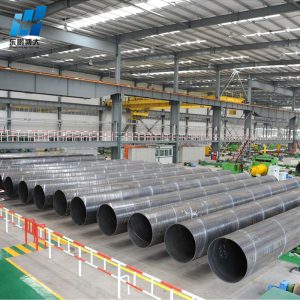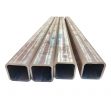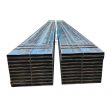Low carbon: the core competitiveness of the future pipe industry
The pipe industry plays a crucial role in various sectors, including construction, infrastructure development, and energy transportation. As the world recognizes the need for sustainable development and the urgent action required to combat climate change, the concept of low carbon has become increasingly important. In this context, low carbon has emerged as the core competitiveness of the future pipe industry.
One of the key aspects of low carbon in the pipe industry is the reduction of greenhouse gas emissions throughout the entire lifecycle of pipe production of Spiral welded pipes, usage, and disposal. Manufacturers are adopting innovative technologies and processes to minimize carbon emissions during production. This includes the use of renewable energy sources, energy-efficient manufacturing techniques, and the adoption of cleaner fuels. By optimizing production processes, the pipe industry can significantly reduce its carbon footprint.

Furthermore, the materials used in pipe manufacturing play a crucial role in achieving low carbon goals. Traditional materials such as steel and concrete have high carbon footprints due to their energy-intensive production processes. However, the industry is exploring alternative materials like composite pipes, which offer excellent mechanical properties while being lightweight and environmentally friendly. These materials reduce energy consumption during production of rectangular steel pipe and transportation, resulting in lower carbon emissions.
In addition to reducing emissions, the pipe industry is focusing on enhancing energy efficiency. This involves developing pipes with improved insulation properties, reducing heat loss during fluid transportation. By minimizing energy wastage, the industry can contribute to overall energy conservation and reduce the reliance on fossil fuels.
The future pipe industry is also embracing circular economy principles to promote sustainability. Recycling and reusing pipes at the end of their lifecycle can significantly reduce waste generation and conserve resources. Manufacturers are implementing strategies for collecting, refurbishing, and repurposing used carbon steel pipes, thereby extending their lifespan and reducing the need for new production. This circular approach not only reduces environmental impact but also presents economic opportunities for businesses in the industry.
Moreover, the pipe industry is actively exploring digitalization and smart technologies to optimize operations and reduce carbon emissions. Advanced monitoring systems, real-time data analysis, and predictive maintenance can enhance energy efficiency, minimize downtime, and optimize resource allocation. These technologies enable the industry to achieve higher productivity while reducing energy consumption and waste generation.
The low carbon transformation of the pipe industry is not only driven by environmental concerns but also by market demand of mild steel tube and regulatory requirements. Customers are increasingly demanding sustainable solutions, and governments are implementing policies and standards to promote low carbon practices. By aligning with these trends, the pipe industry can enhance its competitiveness in the global market and secure long-term sustainability.
Tel: +86 18202256900 Email: steel@tjdpbd.com









